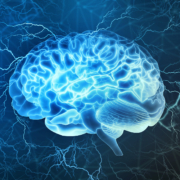Understanding ADHD in kids and teens
According to the U.S. Centers for Disease Control, an estimated 6 million kids between the ages of 3 and 17 have been diagnosed with Attention Deficit/Hyperactivity Disorder (ADHD). But what is it? And how do you know if your kid may have this neurotype? Dr. Nicole Vienna has some answers. Dr. Vienna has dedicated her career to understanding more about ADHD, and has established herself as a national expert on the subject. She also specializes in forensic and neuropsychological evaluations, and has been qualified as an expert in juvenile, state, and federal cases since 2015. The longtime member of the National Academy of Neuropsychology (NAN) has worked on countywide psychiatric mobile response teams and mental evaluation teams with the Los Angeles County Sheriff’s Department, where she was partnered with a law enforcement officer in a police vehicle to provide crisis evaluations to individuals in psychiatric or emotional crisis. BrainWise Manager Editor Matt Villano recently caught up with Dr. Vienna about her work with ADHD, and what parents should know about this form of neurodivergence. What follows is an edited transcript of their conversation.
BrainWise: What is ADHD?
Dr. Nicole Vienna: We classify ADHD as a neurodevelopmental disorder because there are road bumps or deficits that occur in the developmental years, meaning between 0 and 18. The brain goes to a non-traditional or non-typical path of operating. ADHD specifically, though, is commonly in the public seen as ‘hyperactivity disorder.’ That’s only one type of ADHD; there are two other types. However, it could be the inattentive type where a person or child has a hard time focusing on things of importance. They could definitely focus on things that are not important, like video games and stuff that they like, but they can’t focus on schoolwork or difficult tasks, more complex tasks that require a lot of brainpower. The second type is the hyperactive type, where a child is going to have a hard time controlling impulses. They might not be able to sit through class. They talk over people. They interrupt during a conversation. Then, of course, there’s the combined type, where a child has both inattentive symptoms and hyperactive symptoms.
BrainWise: What are some of the telltale symptoms that parents should look for if they’re wondering whether their child has ADHD?
Dr. Vienna: There are several symptoms, other symptoms that you might come across, but parents usually see the hyperactive part, and that’s when they start to go, ‘Huh, what’s going on here?’ They might notice that their child is fidgety or they have a hard time waiting in line at the store, or they don’t listen to directions well. From this, a lot of times when parents aren’t as familiar with it, they might say, ‘Oh, my gosh, my kid is not behaving well. They’re not following rules or directions.’ When this happens, the first step is usually for the child go to the school, and then the school will say, ‘Let’s have a professional come in here.’ That’s the first level of diagnosis.
BrainWise: What does that look like?
Dr. Vienna: I can’t speak for every school district, but most schools have a school psychologist assigned to them. If they don’t have one onsite, it’s usually that the district has one that’s shared among all the schools. A referral can be made by a teacher. A parent can even make the referral. A parent can call and say, ‘I want my child evaluated,’ and the school probably would ask a whole bunch of questions to see if an evaluation is warranted. Then the child would sit in front of the school psychologist.
Some school psychologists don’t diagnose or work out of the DSM, because again, their number one goal, is to provide counseling. [Other school psychologists tackle diagnoses; it just depends on where you live.] It’s also so important to talk to the teachers and see what’s going on in class, because it could be something entirely different. It may not be a neurodivergence issue. There might just be a stressor of some sort at school or at home, too. We see that quite often where the teachers are referring out, it’s not that the student is a bad kid or that they have bad behavior, it’s that they are having trouble regulating emotions and controlling impulses, and they are teenagers. Mom and Dad might’ve just separated, right? So they’re anxious, and their mind is always focused on the family problem instead of school, but all the teachers sees is that the child isn’t focusing on school.
If a parent doesn’t get what they want with the school or they feel like there’s something still there, they can always reach out to a clinical psychologist or a neuropsychologist that specializes in neurodevelopmental disorders to do a separate evaluation.
BrainWise: So that would be someone like you? What does your evaluation look like?
Dr. Vienna: Yes. When they bring their child in for an evaluation, we ask them about the behaviors and the traits that they’ve observed so we can then put that in a timeline for ourselves. We look at when these symptoms started, how often they’re occurring, the frequency, and how long they’ve lasted. We are looking for ADHD symptoms that occur in the developmental years, specifically before the age of 12; symptoms that occur over multiple different settings, not just at home or at school. If the behavior is only happening at home or at school, it might be more of an environmental issue than an actual neurodivergence issue, so we check to see if it happens at home, at school, and other places like sports, church, grocery store, in the public, wherever.
Once we look at the different settings, we take an inventory of symptoms or behaviors or traits from parents, and of course, we interview the child. We seek input from outside sources, too. We’re looking for a variety of different things. Like in school, we may ask the teachers to complete questionnaires and do interviews with them. Sometimes they’ll give us symptoms like, ‘The child’s having problems paying attention to detail, difficulty focusing on assignments both in class and maybe at home.’ Maybe the teacher will tell us the student’s homework is incomplete, or that an otherwise good student is missing things They might report that a student is rushing through their work and not paying attention to details. They might fail to complete tasks. Sometimes it’s more about organizational skills. They lose items. They misplace their backpack. They try to task-load, [or prioritize tasks on a list,] but they can’t remember things as quickly as other students. Parents might add that the child gets distracted easily, which is a hallmark sign
When you move to the hyperactivity side, that’s where their teachers say, ‘They get out of their seat before I’m done with lecture,’ or, ‘They’re disrupting the class by talking to their neighbors, but they’re not very discreet about it. They blurt out the answers without being called on.’ Sometimes this sort of thing goes on at home, too, with parents. The child will finish a sentence really quickly or move on because their brain is just operating very quickly. They have trouble waiting their turn. They just don’t have the kind of impulse control that neurotypical people do. They talk excessively. It almost feels like you’re talking to someone on a motor and they feel pretty restless, so they have a lot of energy. These are some good hallmark signs of the hyperactivity side of ADHD.
BrainWise: And how, symptomatically, does the inattentive part of ADHD go with the hyperactive part? What does that look like in the wild?
Dr. Vienna: When kids have both inattentive behaviors and hyperactivity, they get bored easily. They need to be stimulated. They have very overactive brains, so they need a lot of engagement, and that can be very draining for teachers in a classroom of 30 other students or for parents that have other children. These are the kids who often feel comfortable playing video games, because video games provide that constant stimulation.
BrainWise: So how do you address the intersection of ADHD and screen-use? It sounds like screens can be good for kids with ADHD?
Dr. Vienna: I think it’s always best that you talk to your partner about what the usage is going to be for screens with your child. It’s going to be different for every family, so I don’t want to give a blanket statement of like, ‘Okay, two hours is good enough.’ The CDC does recommend limiting daily screen time [Somewhere between 1 and 2 hours of screen time, to be exact. For more on this, click here.]
Once you and your partner come up with rules around screen time, set those rules with your child so they have a clear understanding of expectations and limits of what they can and cannot do, and for how long. A lot of times we’ll give a game task on the iPad, and a child will have 20 minutes to complete it. But then the child also wants to go on YouTube, and parents will have to make that all fit in a certain timeframe that works. We can’t live our lives on screens because we don’t want to miss out on the social aspect of life, so whatever can be discussed and set ahead of time is the best.
BrainWise: How did you get into this field, and why is it that ADHD is something that has become a specialty of yours?
Dr. Vienna: I ended up doing a two-year postdoc specialization in neuropsychology after grad school. I did it after I got licensed, actually, because I wanted to have a better understanding of the systems in the brain and how that relates to behavior—not just as a checklist of symptoms rendering a psychiatric diagnosis. In my postdoc, I focused on both adolescent cases and adult cases, and then both of those areas combined with forensic matters. So, kids involved with the legal system, kids who might have misdemeanor or felony offenses [who] may have ADHD or be on the autism spectrum. My draw to neuropsychology on a personal level was that two of my siblings also were diagnosed with ADHD, and I saw their struggles growing up.
BrainWise: There was a time in the not-too-distant past where people said ADHD was overdiagnosed. How far have we come in accepting that ADHD is its own unique neurotype?
Dr. Vienna: I do think now with social media being as accessible as it is to young people, we are starting to get more referrals than we used to get because somebody might’ve seen it on TikTok. I even see it from parents; parents come in and they’re like, ‘Oh, I saw this account on TikTok, and this person has this symptom. So does my kid. I think they have ADHD.’ So, we are getting a lot more referrals now. I think it can be overdiagnosed because the root of the symptoms aren’t evaluated out enough. Like I said, we’re not really asking, ‘When did the symptoms start? How often are they occurring?’ Does that timeline fit with what we know about ADHD? We also need to think about other problems that can cause issues with attention and impulse control that might look like ADHD but need different treatments, like trauma. Trauma in a young person’s life can produce a lot of nervous system dysregulation. That dysregulation is one of the things that can look like ADHD, but the treatment plans are different.
So that’s another important thing: Maybe a child did get an ADHD diagnosis and the treatment plan that their doctor or their psychologist wrote out isn’t working. In this case, they’ll probably go back to the drawing board. Or maybe you can ask them, ‘Hey, maybe this is something else besides ADHD and maybe there’s a trauma?’ That’s why history is so important. That’s why we like it when parents are open and honest so we can get the right diagnosis and the correct treatment plan.
Are we diagnosing more? Maybe a little bit. Is it because we know more or is it because people are learning more about the symptoms on social media and then reporting them to the psychologist or the medical provider? Those studies haven’t been done, at least I haven’t seen any studies parsing all that data out, but I know they’re in the works. I have seen some come up, but just not a lot, so we don’t know. Parents sometimes will call my office and say, ‘What tests do you give to evaluate for ADHD?’ I mean, as a neuropsychologist, I have access to tests, but a test alone will not render a diagnosis. A psychologist or a clinician can render a diagnosis by looking at multiple data points, so testing is one data point, but really I can give a diagnosis of ADHD by getting a really good history from the parents, and then, of course, interviewing with the child.
BrainWise: Where does ADHD research go from here?
Dr. Vienna: In my realm of doing forensic work with kids that [have] ADHD, we’re looking at the correlation between certain areas of brain dysfunction, certain physical changes, and maladaptive behavior. Some of my clinical colleagues are looking at the correlation between blood sugar levels and ADHD, the impact of that on genetics, and then how genetics are expressed outwardly. They’re looking at cortisol levels and ADHD, so a lot of nitty-gritty neuroscience stuff. We’re always looking for correlations. I mean, we can’t really identify one thing as the cause of ADHD. It’s usually multiple things together.
What I see a lot in my practice is, and research that I follow-up on, is the impact of stimulants such as cocaine and methamphetamine on the developing brain. We would like to know more about the effect of stimulant drugs, like cocaine and amphetamines, on the developing brain in utero, and whether that leads to inattentive and hyperactive behaviors down the road. We don’t have many human studies focusing on this. We have animal research on it, but it would be unethical to have pregnant women do drugs.
This article has been factchecked by members of NAN’s Publications Committee. For more about that process, click here.









